Ammar Campa-Najjar
Ammar Campa-Najjar (Democratic Party) is running for election to the U.S. House to represent California's 48th Congressional District. He declared candidacy for the primary scheduled on June 2, 2026.[source]
Biography
Campa-Najjar worked on Barack Obama's presidential re-election campaign as a deputy regional field director before joining the Obama administration in the Executive Office of the President. He worked at the United States Hispanic Chamber of Commerce as a communications and marketing director and for the U.S. Department of Labor as a public affairs officer. He also founded ACN Strategies. Campa-Najjar graduated from San Diego State University.[1][2]
Elections
2026
See also: California's 48th Congressional District election, 2026
General election
The primary will occur on June 2, 2026. The general election will occur on November 3, 2026. General election candidates will be added here following the primary.
Nonpartisan primary election
Nonpartisan primary for U.S. House California District 48
The following candidates are running in the primary for U.S. House California District 48 on June 2, 2026.
Candidate | ||
 | Darrell Issa (R) | |
| Mike Bucy (Independent) | ||
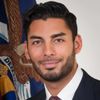 | Ammar Campa-Najjar (D) | |
 | Abel Chavez (D) | |
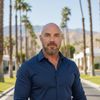 | Stephen Clemons (D)  | |
 | Corinna Contreras (D) | |
| Nicholas Davis (D) | ||
 | Curtis Morrison (D)  | |
 | Brian Nash (D) | |
 | Ferguson Porter (D) | |
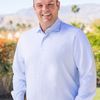 | Brandon Riker (D) | |
 | Whitney Shanahan (D) | |
 | Marni von Wilpert (D) | |
 = candidate completed the Ballotpedia Candidate Connection survey. = candidate completed the Ballotpedia Candidate Connection survey. | ||||
| If you are a candidate and would like to tell readers and voters more about why they should vote for you, complete the Ballotpedia Candidate Connection Survey. | ||||
Do you want a spreadsheet of this type of data? Contact our sales team. | ||||
Withdrawn or disqualified candidates
- Anuj Dixit (D)
- Suzanne Till (D)
- Marc Iannarino (D)
- Albert James Mora (No party preference)
Endorsements
Ballotpedia is gathering information about candidate endorsements. To send us an endorsement, click here.
2022
See also: Mayoral election in Chula Vista, California (2022)
General election
General election for Mayor of Chula Vista
John McCann defeated Ammar Campa-Najjar in the general election for Mayor of Chula Vista on November 8, 2022.
Candidate | % | Votes | ||
| ✔ | 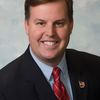 | John McCann (Nonpartisan)  | 52.1 | 33,992 |
 | Ammar Campa-Najjar (Nonpartisan)  | 47.9 | 31,280 | |
| Total votes: 65,272 | ||||
 = candidate completed the Ballotpedia Candidate Connection survey. = candidate completed the Ballotpedia Candidate Connection survey. | ||||
| If you are a candidate and would like to tell readers and voters more about why they should vote for you, complete the Ballotpedia Candidate Connection Survey. | ||||
Do you want a spreadsheet of this type of data? Contact our sales team. | ||||
Nonpartisan primary election
Nonpartisan primary for Mayor of Chula Vista
The following candidates ran in the primary for Mayor of Chula Vista on June 7, 2022.
Candidate | % | Votes | ||
| ✔ |  | John McCann (Nonpartisan)  | 30.8 | 13,580 |
| ✔ |  | Ammar Campa-Najjar (Nonpartisan)  | 22.6 | 9,943 |
 | Jill Galvez (Nonpartisan) | 19.7 | 8,689 | |
| Zaneta Encarnacion (Nonpartisan) | 13.6 | 5,974 | ||
 | Rudy Ramirez (Nonpartisan) | 6.8 | 3,008 | |
| Spencer Cash (Nonpartisan) | 6.4 | 2,840 | ||
Christine Brady (Nonpartisan) (Write-in)  | 0.1 | 35 | ||
| Total votes: 44,069 | ||||
 = candidate completed the Ballotpedia Candidate Connection survey. = candidate completed the Ballotpedia Candidate Connection survey. | ||||
| If you are a candidate and would like to tell readers and voters more about why they should vote for you, complete the Ballotpedia Candidate Connection Survey. | ||||
Do you want a spreadsheet of this type of data? Contact our sales team. | ||||
2020
See also: California's 50th Congressional District election, 2020
General election
General election for U.S. House California District 50
Darrell Issa defeated Ammar Campa-Najjar in the general election for U.S. House California District 50 on November 3, 2020.
Candidate | % | Votes | ||
| ✔ |  | Darrell Issa (R) | 54.0 | 195,521 |
 | Ammar Campa-Najjar (D) | 46.0 | 166,869 | |
| Total votes: 362,390 | ||||
 = candidate completed the Ballotpedia Candidate Connection survey. = candidate completed the Ballotpedia Candidate Connection survey. | ||||
| If you are a candidate and would like to tell readers and voters more about why they should vote for you, complete the Ballotpedia Candidate Connection Survey. | ||||
Do you want a spreadsheet of this type of data? Contact our sales team. | ||||
Nonpartisan primary election
Nonpartisan primary for U.S. House California District 50
The following candidates ran in the primary for U.S. House California District 50 on March 3, 2020.
Candidate | % | Votes | ||
| ✔ |  | Ammar Campa-Najjar (D) | 36.5 | 74,121 |
| ✔ |  | Darrell Issa (R) | 23.1 | 47,036 |
 | Carl DeMaio (R) | 19.9 | 40,347 | |
 | Brian Jones (R) | 10.6 | 21,495 | |
 | Marisa Calderon (D) (Unofficially withdrew)  | 5.7 | 11,557 | |
| Nathan Wilkins (R) | 2.1 | 4,276 | ||
 | Jose Cortes (Peace and Freedom Party of California)  | 0.9 | 1,821 | |
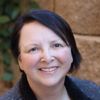 | Helen Horvath (Independent)  | 0.6 | 1,249 | |
| Henry Ota (Independent) | 0.4 | 908 | ||
 | Lucinda Jahn (Independent)  | 0.2 | 410 | |
| Total votes: 203,220 | ||||
 = candidate completed the Ballotpedia Candidate Connection survey. = candidate completed the Ballotpedia Candidate Connection survey. | ||||
| If you are a candidate and would like to tell readers and voters more about why they should vote for you, complete the Ballotpedia Candidate Connection Survey. | ||||
Do you want a spreadsheet of this type of data? Contact our sales team. | ||||
Withdrawn or disqualified candidates
- Matt Rahn (R)
- Larry Wilske (R)
- Sam Abed (R)
- Duncan Hunter (R)
- Bill Wells (R)
- Hunter Spears Duncan (R)
- David Edick (Independent)
- Alex Balkin (D)
Candidate profile

Party: Democratic Party
Incumbent: No
Political Office: None
Biography: Campa-Najjar worked on Barack Obama's presidential re-election campaign, in the Executive Office of the President, at the United States Hispanic Chamber of Commerce, and at the U.S. Department of Labor. He also founded ACN Strategies. Campa-Najjar graduated from San Diego State University.
Show sources
This information was current as of the candidate's run for U.S. House California District 50 in 2020.
2018
General election
General election for U.S. House California District 50
Incumbent Duncan Hunter defeated Ammar Campa-Najjar in the general election for U.S. House California District 50 on November 6, 2018.
Candidate | % | Votes | ||
| ✔ |  | Duncan Hunter (R) | 51.7 | 134,362 |
 | Ammar Campa-Najjar (D) | 48.3 | 125,448 | |
| Total votes: 259,810 | ||||
 = candidate completed the Ballotpedia Candidate Connection survey. = candidate completed the Ballotpedia Candidate Connection survey. | ||||
| If you are a candidate and would like to tell readers and voters more about why they should vote for you, complete the Ballotpedia Candidate Connection Survey. | ||||
Do you want a spreadsheet of this type of data? Contact our sales team. | ||||
Nonpartisan primary election
Nonpartisan primary for U.S. House California District 50
The following candidates ran in the primary for U.S. House California District 50 on June 5, 2018.
Candidate | % | Votes | ||
| ✔ |  | Duncan Hunter (R) | 47.4 | 69,563 |
| ✔ |  | Ammar Campa-Najjar (D) | 17.6 | 25,799 |
 | Bill Wells (R) | 12.9 | 18,951 | |
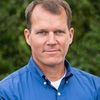 | Josh Butner (D) | 12.9 | 18,944 | |
 | Patrick Malloy (D) | 5.9 | 8,607 | |
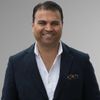 | Shamus Sayed (R) | 2.1 | 3,079 | |
Richard Kahle (Independent)  | 1.2 | 1,714 | ||
| Total votes: 146,657 | ||||
 = candidate completed the Ballotpedia Candidate Connection survey. = candidate completed the Ballotpedia Candidate Connection survey. | ||||
| If you are a candidate and would like to tell readers and voters more about why they should vote for you, complete the Ballotpedia Candidate Connection Survey. | ||||
Do you want a spreadsheet of this type of data? Contact our sales team. | ||||
Withdrawn or disqualified candidates
- Pierre Beauregard (D)
- Andrew Zelt (R)
- Glenn Jensen (D)
- Gloria Chadwick (D)
- Alex Spilger (D)
Campaign themes
2026
Ballotpedia survey responses
See also: Ballotpedia's Candidate Connection
Ammar Campa-Najjar has not yet completed Ballotpedia's 2026 Candidate Connection survey. If you are Ammar Campa-Najjar, click here to fill out Ballotpedia's 2026 Candidate Connection survey.
Who fills out Ballotpedia's Candidate Connection survey?
Any candidate running for elected office, at any level, can complete Ballotpedia's Candidate Survey. Completing the survey will update the candidate's Ballotpedia profile, letting voters know who they are and what they stand for. More than 25,000 candidates have taken Ballotpedia's candidate survey since we launched it in 2015. Learn more about the survey here.
Help improve Ballotpedia - send us candidate contact info.
2022
Ammar Campa-Najjar completed Ballotpedia's Candidate Connection survey in 2022. The survey questions appear in bold and are followed by Campa-Najjar's responses.
| Collapse all
As a third-generation Chula Vistan and product of the Sweetwater School District, I began working in high school as a church janitor in Chula Vista, graduated from Southwestern College and SDSU, served President Obama's White House as a GS-12 Federal official, worked as an executive for the U.S. Hispanic Chamber of Commerce and started a business.
As Mayor, I'll work with local, state and federal officials to deliver results. I'll increase public safety and reduce crime, keep our schools and children safe, and improve housing opportunities. I'm prepared to bring a fresh vision that will attract more economic opportunities and investments in our community.
We must meet this moment with a vision that innovates and rejuvenates Chula Vista from Broadway to 3rd Avenue, to Millenia.
Our most trusted public servants are united behind our campaign.
Chula Vista' s first responders and firefighters have called on me to be our next Mayor.
I'm endorsed by Governor Gavin Newsom, U.S. Senator Alex Padilla, Congressman Juan Vargas, Chula Vista teachers, President of the Chula Vista Chamber of Commerce, and Chula Vista Councilmembers Jill Galvez and Andrea Cardenas.
With your support, I'll be ready to serve Chula Vista on day one.
I want to hear from you. Text or call me at 619-721-5148 and I'll answer you personally.
- Safe Neighborhoods and Reducing Crime
- Reducing the Cost of Housing and Jobs
- Tackling Homelessness
The next mayor will determine the success of our bayfront development, four-year university and the sports arena announced last month. These projects will create jobs, spur businesses and housing opportunities, and drive revenue to better fund public safety, schools and ensure Chula Vistans who want to live here aren’t forced to leave due to limited opportunity.
Note: Ballotpedia reserves the right to edit Candidate Connection survey responses. Any edits made by Ballotpedia will be clearly marked with [brackets] for the public. If the candidate disagrees with an edit, he or she may request the full removal of the survey response from Ballotpedia.org. Ballotpedia does not edit or correct typographical errors unless the candidate's campaign requests it.
2020
Ammar Campa-Najjar did not complete Ballotpedia's 2020 Candidate Connection survey.
Campaign website
| “ |
PRE-SCHOOL, CHILDCARE AND EARLY EDUCATION The single most impactful investment we can make to strengthen our middle-class economy and way of life is in our children. As a child, my mother couldn't afford childcare but thankfully my grandmother was able to watch over me. During my service in the US Department of Labor, we promoted affordable, high-quality childcare for working mothers and single parents. We also supported expanded family leave because a parent should never have to choose between their job and newborn child. Studies show that 85 percent of brain development occurs within the first three years of a child’s life. That's why I support investing in proven programs such as prenatal and developmental screenings and post-natal family nurse visits. We should invest in universal preschool, so that every child has a head start to succeed in kindergarten. Investing in our children should be an end in itself, but it also has a broader community impact: students who participate in early education programs end up relying less on government assistance, have fewer altercations with the criminal justice system, are high academic achievers, and go on to lead successful careers. With the common core curriculum standards in place now, kindergarten classrooms are more like the first-grade classrooms of the past. Children are expected to be reading by the end of their kindergarten year. This gives preschool educated children a huge advantage in the classroom over their non-preschool educated peers. The likelihood of being school ready is 9 percentage points higher for children attending preschool. From a family perspective, universal preschool provides a lifeline for struggling families who often rely on both parents to work extra jobs solely for the purpose of paying for childcare. Providing quality preschool education to children ages 3-5 can eliminate the need for expensive private childcare and put that money back into the pockets of American moms and dads. How do we invest in our children without raising taxes on middle-class families? First, By asking individuals who are worth more than $50 million to pay 2 cents for every dollar exceeding $50 million and 3 cents for every dollar exceeding $1 billion toward funding childhood development programs. This plan would only impact the 75,000 wealthiest families in America and raise $2.75 trillion dollars over the next 10 years. Second, I would eliminate the excessive tax loopholes for multinational corporations that have doubled over the past 40 years. Under President Ronald Reagan, tax loopholes were at $800 billion and now they're at $1.6 trillion. Thirdly, I would tax stock trades. This would raise and estimated $800 billion over the next decade. Lastly, I would cut down on the excessive fraud waste and abuse that exists in our federal government by streamlining and modernizing our government through the use of technology. JOBS AND INFRASTRUCTURE Among District 50’s top challenges are economic growth and income inequality. Instead of excessive government spending on corporate subsidies and tax cuts that aren’t reinvested in American workers, Congress should invest in millions of American workers to help working families punch their ticket to the middle class. The unemployment rate of CA50 is 8 percent, over double the rate of San Diego county. 1 in 3 children in El Cajon are in poverty, and over 6,000 children go to bed hungry each night. I’ve seen firsthand how lives and families are hurt when we put special interests ahead of the American worker. I know that our rural and suburban communities need a seat at the table when it comes to new workforce programs. As congressman, I will be your voice. I will do everything I can to bring quality job opportunities to California’s 50th. FEDERAL APPRENTICESHIP PROGRAM There are 7 million job vacancies in America, including 360,000 in manufacturing, 200,000 in construction and millions more in advanced manufacturing, construction, renewable energy, healthcare, education, financial services/business, hospitality, telecommunication, IT/cyber security, transportation and other high growth sectors. We can fill these vacancies by investing in childcare and innovative programs like “Registered Apprenticeships” — an earn-while-you-learn program that connects job seekers with employers who are in search of skilled workers. While working at the US Department of Labor, I found that the average registered apprentice earns $70,000 a year — double the median individual income in America. Apprenticeships have employed half-a-million workers who are ready to learn and earn on their first day on the job. That gives apprentices the financial freedom to pursue either higher education or higher positions in their industries. Do the math: 7 million job vacancies x $70k salaries [equals] $490 billion added to our nation’s economy each year. That’s more consumer spending in local businesses, and billions of dollars in tax revenue to preserve Medicare and social security. All without raising any taxes. How do we pay for it? Employers are willing to pay good money for skilled workers. For every $1 employers invest in apprenticeships, they average a $1.47 return on investment in productivity, front line innovation, and reduced error, time, and waste. All we need to do is promote vocational training through community colleges, trade school, and unions. By investing billions into this program instead of other vanity projects like a wall we don’t need, we can give every American the dignity of a good paying job that would end welfare as we know it. OTHER JOB TRAINING If elected, I'll work with unions and colleges on legislation that brings job training programs to our district in traditional sectors, as well as in high growth-sectors including advanced manufacturing, construction, renewable energy, healthcare, education, financial services/business, hospitality, telecommunication, IT/cyber security, transportation and other high growth sectors. Federal investment must also target communities with the highest unemployment rates and increase training for low-paying industries such as home health care, hospital care, child care, cleaning and other service work. UNIONS AND FAIR WAGES I will continue to support collective bargaining and a seat at the table for America’s unions that play such a vital role in protecting the American worker. I support prevailing wages for all government contracts, as well as grants, small business tax breaks and other investments to pull more workers out of poverty. I support gender equity in wages and access to paid sick leave for all workers. TRADE I opposed the Trans-Pacific Partnership and support adjustments to NAFTA that redress its deficiencies for workers in both developed and developing countries. I pledge to support trade agreements that advance domestic manufacturing and enforce equitable labor and environmental protections. I will also work to expand federal investment in training and services for workers displaced by unfair trade agreements, such as the Trade Adjustment Assistance program that I helped to further while working at the US Department of Labor. INFRASTRUCTURE I commit to work to bring federal infrastructure projects to our district and region. We must modernize our utility pathways and grid lines to increase their efficiency and reduce hazards as average temperatures continue to rise. Improving our mass transit, airports, roads, bridges and tunnels will not only create good jobs, it will also facilitate and enhance both commerce and workers’ access to employment. DEFEND AND STRENGTHEN PUBLIC EDUCATION There are two facts about our education system you need to know up-front. First, 94% of teachers paying for supplies out of their own pocket while making 11% less than other similarly educated professionals. Teachers help raise our children 9 hours a day, we need to pay them their value. Also, 80% of students attend our public schools. We need to make sure our Nation's public learning institutions are properly funded. I’m a product of the public school system. I have attended Eastlake High school, Southwestern College, Grossmont College and San Diego State University. I found my lifelong mentors attending public schools. There are so many bright students out there waiting to be discovered. That's why I’ll prioritize investing in high-quality education that sets our children up for social success, financial independence and meaningful careers. Below are my education proposals from cradle to career. PRE-SCHOOL, CHILDCARE AND EARLY EDUCATION The single most impactful investment we can make to strengthen our middle-class economy and way of life is in our children. As a child, my mother couldn't afford childcare but thankfully my grandmother was able to watch over me. During my service in the US Department of Labor, we promoted affordable, high-quality childcare for working mothers and single parents. We also supported expanded family leave because a parent should never have to choose between their job and newborn child. Studies show that 85 percent of brain development occurs within the first three years of a child’s life. That's why I support investing in proven programs such as prenatal and developmental screenings and post-natal family nurse visits. We should invest in universal preschool, so that every child has a head start to succeed in kindergarten. Investing in our children should be an end in itself, but it also has a broader community impact: students who participate in early education programs end up relying less on government assistance, have fewer altercations with the criminal justice system, are high academic achievers, and go on to lead successful careers. With the common core curriculum standards in place now, kindergarten classrooms are more like the first-grade classrooms of the past. Children are expected to be reading by the end of their kindergarten year. This gives preschool educated children a huge advantage in the classroom over their non-preschool educated peers. The likelihood of being school ready is 9 percentage points higher for children attending preschool. From a family perspective, universal preschool provides a lifeline for struggling families who often rely on both parents to work extra jobs solely for the purpose of paying for childcare. Providing quality preschool education to children ages 3-5 can eliminate the need for expensive private childcare and put that money back into the pockets of American moms and dads. How do we invest in our children without raising taxes on middle-class families? First, By asking individuals who are worth more than $50 million to pay 2 cents for every dollar exceeding $50 million and 3 cents for every dollar exceeding $1 billion toward funding childhood development programs. This plan would only impact the 75,000 wealthiest families in America and raise $2.75 trillion dollars over the next 10 years. Second, I would eliminate the excessive tax loopholes for multinational corporations that have doubled over the past 40 years. Under President Ronald Reagan, tax loopholes were at $800 billion and now they're at $1.6 trillion. Thirdly, I would tax stock trades. This would raise and estimated $800 billion over the next decade. Lastly, I would cut down on the excessive fraud waste and abuse that exists in our federal government by streamlining and modernizing our government through the use of technology. STRONG PUBLIC SCHOOLS I believe public funds should go to public education, especially when over 80% of students attend public schools. I also believe parents should be allowed to explore other choices to meet their children’s unique needs and talents. For example, many parents in our district homeschool their children entirely out of their own pocket. And even though they pay taxes, no public funding goes toward their children’s education. With respect to charter schools in California, the original intent was to improve student learning while encouraging the use of different and innovative teaching methods and creating new professional opportunities for educators. It was important that charter schools were developed at the local site level and with the full participation of all “stakeholders,” including educators, school board members, parents, guardians and other members of the community. These “laboratories of innovation” were meant to try new pedagogical approaches on a small scale. Unfortunately, as charter schools expanded in California many departed from this original vision. Increasingly, charter schools are operated by large charter management organizations (CMOs). This means important decisions are frequently made without sufficient oversight and far from the school communities they are meant to serve. Now, there is a movement to change this and return to the original vision. Charter school educators, parents, students and community members are standing up to make sure charter schools are accountable to our communities. A moratorium on expanding large-scale charter schools should be instituted until:
Once elected, I will protect public schools. It’s crucial to the success of our future generations that parents are deeply involved in their children’s education and the schools they attend but placing this heavy burden solely on parental shoulders is a mistake for our nation which all but guarantees inequity in educational opportunities. The idea that only children with devoted parents with educations themselves and ample family time would succeed is unpatriotic. AMERICA’S COMMUNITY COLLEGE PROMISE PROGRAM During my time at the Department of Labor, I worked on promoting tuition-free community college. Inspired by President Obama’s America’s College Promise plan to make two years of community college free for responsible students, America’s Promise grants are designed to accelerate the development and expansion of regional workforce partnerships committed to providing a pipeline of skilled workers in specific sectors. As a result, in communities all across America, a new promise is being made. High School students that reach their full potential and meet clear objectives are able to attend two year community college programs free of charge. These programs are popular and already setting new standards of excellence in the communities they serve. Take for example the city of San Marcos, here in our district. San Marcos instituted the “Palomar Promise” program in the fall of 2017 in conjunction with Palomar College. Eligible San Marcos High School students can receive two years of college courses towards their Associate’s Degree, tuition-free. Similar statewide programs have been a major success. The “Tennessee Promise,” has been successful in every way imagined - better student retention, higher overall college enrollment, higher full-time college enrollment and better success rates in general. Community Colleges and trade schools are the backbone of our higher education system. If elected, I would go to Washington D.C. with the purpose of advocating to secure more funding for our district’s community colleges. MAKING UNIVERSITIES AFFORDABLE Universities are laboratories of innovation and forward thinking, no community is complete without one. We are fortunate to have California State University San Marcos in our district. I believe we should restore America’s basic bargain: If you take responsibility, America will give you opportunity. We cannot spend money we don't have and leave the next generation with soul crushing national and personal debt. But we can provide the opportunity of debt-free college for those who need it, if they’re willing to take responsibility and earn it through merit. In America, it’s your decisions rather than your conditions that should determine your future. We should reward students who are working hard in school, but whose families lack the financial means to support their higher education. For debt-free college to work, students and the wealthiest among us must fulfill their responsibilities to each other. This means asking America’s wealthiest families — those who pay zero in taxes by holding offshore accounts — to pay their fair share to the very country that made their success possible. With the idea of opportunity for all and responsibility from all in mind, here are a few ways we can make debt-free college a responsible reality:
By diversifying career pathways, we save time and money for individuals who later on find out that college wasn’t their preference, we eliminate so-called “free-riders,” and free up funding for students who plan on completing their university education. If we can expose our youth to different pathways of higher learning, we’ll be able to reduce wasteful spending and make college more affordable for those truly seek it.
As automation begins to displace workers throughout entire industries, including our federal government, I would urge my colleagues in Congress to restructure our federal budget to make unprecedented investments in free college and on-the-job apprenticeship training so people can continue to work and retire with dignity. For example, as evidenced by an agency of the United States Department of Defense responsible for the development of emerging technologies for use by the military known as DARPA, military personnel will soon be replaced by automation at an alarming rate. While we will always need and honor our men and women in uniform, the automation of our military will decrease the number of vacancies in many military occupations. As a result, recent high school graduates who once opted to join the military because they couldn’t afford college will no longer have that option. It will become imperative to re-appropriate some of our defense spending as it pertains to recruiting, training, housing, feeding and deploying military personnel toward debt-free college for students who would’ve otherwise joined the military had vacancies been available. The military will still need engineers and coders to design these automated elements of our military, so we must invest in education and automated military workforce training to meet these demands. This same scenario will apply to various agencies and departments within the federal government. Once elected, I will explore every item in our federal spending that presents the same challenges and opportunities in order to make debt-free college possible without raising middle class taxes. COLLEGE STUDENT LOAN DEBT Student debt has become a 1.3 trillion dollar problem. Student debt has crippled an entire generation of Americans. If this issue goes unresolved, today’s generation of Americans may be the first to be left off worse than their parents. Our nation was founded upon the values of equality for all Americans. Education as a public good has sustained our country through periods of prosperity and growth as well as periods of recession. But saddling our young people with debt that takes a lifetime to pay off is unfair and a contract no one should be forced to sign. I believe we should forgive student debt for those who devote time out of college toward public service of their choice. Like the GI Bill, we should institute a Civilian Bill, where service, hard work, and responsibility is rewarded through debt free education. OTHER EDUCATION PRIORITIES
Shortages of teachers caused by district instability, difficult working conditions and low pay have enabled thousands of teachers with just five weeks of summer training (and sometimes as few as 30 hours) to enter the classrooms of primarily poor children during the past 10 years. All children need teachers who have who have extensive training in classroom management and developing and delivering curriculum.
JOBS AND SMALL BUSINESS As a business owner myself and a former executive director for a nation chamber of commerce, I understand the burdens small businesses face. That’s why one my top small business priorities is to eliminate the barrier entrepreneurs face trying to afford healthcare for themselves and employers. One major barrier entrepreneurs face when trying to start and scale their small business is the cost of healthcare for themselves and employees. Click here to read my Healthcare Reform platform. I’ll work to provide small businesses access to credit, capital and contracts to compete against big business. By providing more tax cuts, federal and supply chain contracts with major companies, we can help small businesses flourish in CA50. Small businesses create 2/3 new American jobs, helping small businesses thrive is the best way to stimulate local economies throughout our district. INVESTING IN SMALL BUSINESS Small businesses are the lifeblood of our American economy and way of life, creating two-thirds of all new jobs. To keep the economy roaring and jobs growing, we have to invest in actual job creators. In congress, I’ll help local businesses gain more access to credit, capital, and compete for contracts both through the SBA and industry supply chains. ENDING CORPORATE WELFARE We can create a 21st century economy that works for everyone. But first, we need to end the most burdensome and expensive welfare program in the United States: Corporate welfare. Today, hundreds of billions of middle class taxpayer dollars are going to big corporations, like unaccountable pharmaceutical companies that jack-up prices for live-saving prescription drugs. Middle class taxes are being spent by big corporations to ship jobs abroad, replace American workers with automation, and provide an advantage over small local business owners struggling to compete in a global economy. Rather than these massive corporate giveaways, I’ll push to provide tax breaks and invest in small businesses to create more jobs, spur homegrown innovation, and increase local consumer confidence that allows economic activity to circulate throughout our district. CA50’S UNIQUE BUSINESS ADVANTAGES District 50 has a unique advantage to attract businesses — both big and small — to our rural and suburban areas alike. Research shows IT companies are saving costs by relocating to rural areas with lower costs of living and higher employee retention. When elected, I will work with high tech companies such as Space X to bring high paying jobs in the manufacturing sector to our district. The 50th is also home to 14 reservations, all of which are tax exempt. Rather than watch good jobs go to Nevada, Arizona and Texas due to more business friendly tax codes, the 50th should compete and bring jobs to our skilled middle class and to our most impoverished rural and Native American neighbors. In my discussions with tribal leaders, the idea of attracting industry to their lands to create more jobs for their population and surrounding communities is welcomed. CA50 is open for business! NATIONAL DEBT When individual Americans live beyond their means, they go bankrupt. When our government spends more than it raises in tax revenue, we pass on the debt to the next generation to pay. The current administration has contributed over $2 trillion to our national debt, but both parties are guilty for the $22 trillion national debt that my generation will be burdened with. Ultimately, my generation will have to pay off this debt, either by losing our earned benefits like Social Security and Medicare, or by digging a deeper hole for the next generation by borrowing more from foreign lenders, financial institutions and corrupt companies to fund our government. This is reckless and unsustainable. To fix this, we need to make large long-term spending cuts and short term investments in economic growth to pay down our national debt. That’s why I’ll vote to:
UNIVERSAL HEALTHCARE
Regardless of whether you're Republican, Independent, or Democrat: I don’t care about your personal politics, I care about your personal health. As congressman, my top priority will be to encourage competition, patient choice, and innovation to lower healthcare costs and improve the quality of service for every family and small business owner in my district. I once asked a single mother from my district what keeps her up at night. Her answer: “I’m an illness away from losing my home.” Nobody should ever have to choose between paying their mortgage and their medical bills. I believe healthcare is a right, not a privilege for a few. The U.S. is the only developed nation on earth that doesn’t ensure all of its citizens have access to healthcare. With 18% of our economy going to healthcare every year, the U.S. pays twice as much — $3.5 trillion dollars — as any other country. On top of that, our healthcare results are abysmal, un-American, and unpatriotic. I’m running because for damn sake, if you’re sick you should be able to see a doctor. If you need medicine, you should be able to afford what your doctor prescribes you.No more half steps, no more splitting pills. We need to fully solve healthcare in America once and for all. In congress, I’ll stand up to pharmaceutical companies, rein in the high cost of healthcare and prescription drugs, and protect people with pre-existing conditions and allow children to stay on their parents healthcare plan. PROTECT PRE-EXISTING CONDITIONS Before the Affordable Care Act (ACA), insurance companies denied patients with pre-existing conditions. One tragic case was a woman who was denied coverage because she was a victim of domestic violence, which was considered a pre-existing condition. 30 million uninsured Americans have received access to healthcare through the Affordable Care Act (ACA), including 46,000 residents of CA50. While it has serious flaws, it has advanced our nation closer to the universal coverage offered by other industrialized countries. Preventative healthcare for women must remain covered, including mammograms, to screenings for cervical cancer, prenatal care, and other services. Congress must improve on the ACA, not undermine it and tear it down with nothing to replace it. We need to break through political gridlock in Washington and get on with the people’s business. PROTECT THE FOLLOWING ACA PROVISIONS:
But even with these fixes, ACA still costs too much for many Americans. Medical costs continue to rise, making ACA coverage unaffordable and inaccessible for tens of millions of Americans. TRICARE, the military’s healthcare program, and Medicare have both proven to provide more affordable care than the private insurance system does. We should learn from these successful models and expand them for everyone. EXPANDING MEDICARE Medicare today: Medicare is health care that seniors have earned after a lifetime of paying taxes. It’s a popular program, and most seniors polled are satisfied with their benefits. But for many seniors, Medicare alone doesn’t cover all medical expenses and many purchase Medicare Advantage or other supplemental private insurance to cover what their Medicare policy does not. What I am against: First, let me clearly state that I am against forcing every American into government-run healthcare. Patients should be able to have access to private doctors, practitioners and hospitals. I do not believe in enacting Medicare for All over night, and believe the following programs should not be messed with: TRICARE for active military members, the VA Veterans health care program and programs for Native Americans (IHS). What I support: A four year plan that allows people and employers to buy-into Medicare early in four phases. In the first year, people over the age of 50 would become eligible to buy-in to Medicare. In the second year, the buy-in option would be lowered to 45, followed by 35 in the third year, and in the final year all taxpayers would be eligible to buy-in to Medicare as their primary insurance plan, thereby eliminating the costs of private insurance premiums, co-payments, and deductibles. What about private insurance? Like seniors who have the choice to purchase Medicare advantage and supplemental insurance, I believe people should have the choice to purchase supplemental private healthcare insurance if they have the desire and means to do so. End result: This plan would positively impact all consumers, force the free market to adapt, and sustain Medicare for seniors over the age of 65. What changes? Right now, a part of your paycheck each month goes to fund your future Medicare benefits upon retirement. My plan would simply give Americans access to Medicare now. In exchange for paying more into Medicare, we’d eliminate expensive premiums, co-payments and deductibles of private insurance. The net result would be less costly coverage. According to Physicians for a National Health Program, 95 percent of all households would save money under such a program. Patients would no longer face financial barriers to care such as co-pays and deductibles, and would regain free choice of doctor and hospital, and doctors would regain autonomy over patient care. CHILDREN’S HEALTH INSURANCE PROGRAM (CHIP) Sick children and pregnant women should always have quality healthcare. I would vote for permanent authorization of the CHIP program on its merits. MEDICINAL CANNABIS Many wounded veterans, cancer patients, and recovering opioid addicts have successfully incorporated medicinal cannabis into their treatment. In fact, studies have shown that medicinal cannabis can help heal the human brain after years of opioid abuse by reconnecting synapses and neural networks. If elected, I will support de-scheduling cannabis and fund research to examine it as a natural alternative to often lethal prescription drugs such as opioids, depressants, and amphetamines. TO KEEP OUR MILITARY STRONG AND RESILIENT, AMMAR PLEDGES HE WILL: America must always be protected, its values and citizens defended. We must uphold human rights globally and remain a vigilant force against terrorism. To do this we must enable and ensure our military is strong, resilient, properly funded and fully supported. I believe that our military should prioritize the use of force whenever our national security is at stake. The world has become increasingly dangerous and complex. We should use all the tools of American power, beginning with diplomacy and economic development, to confront global threats and always ensure war is the last resort. As your representative, I will fight for the equal rights of all brave Americans serving our country in uniform. I will continue to defend the repeal of Don’t Ask, Don’t Tell and am fully committed to ensuring fair and equal treatment of all active duty members and veterans. I stand by the many Flag Officers and Senior Executive Service officials who advise us that we should ensure opportunities for all qualified members of the military to compete for jobs on a level playing field. No exceptions. Additionally, I am committed to further addressing the issue of sexual assault in the military. We must increase our efforts to investigate and prosecute cases. We must stand by victims of sexual assault and provide the necessary treatment for physical, emotional and psychological trauma, as well as career ramifications. We must continue to improve our military culture and ensure all workplaces are safe and inclusive.
PROPERTY RIGHTS I vow to protect the property rights of individuals — whether it’s their private home, workplace or other property. The biggest investment most of us will ever make is in our private property; it’s the legacy we leave behind for our children. For most of us, our property is where we grow and protect our wealth and often the only thing we have left to pass on to our loved ones when our time is up. That’s why I will stand with CA50 families against greedy government bullies trying to tread on personal land for political purposes, like building a wall where private American-owned property happens to exist. Big government calls it “eminent domain.” I won’t mince words, I’ll tell Washington “don’t tread on me.” DEFEND THE AMERICAN DREAM Congress has failed to fix our broken immigration system for decades. We need to make it easier for immigrant families to come to our country legally, improve our ports of entry to ease the flow of commerce, and modernize border security to combat human and drug trafficking more effectively. From fair wages to security, the fate of America's citizens and aspiring citizens are inextricably bound. Like all our communities, immigrants and refugees are overwhelmingly good-natured and well-intentioned people. And like all communities, they share our security concerns. In fact, as people fleeing persecution and crime in their countries of origin, refugees and immigrants come to the United States seeking security. That is why securing our country is important for both citizens and aspiring citizens. As the son of an immigrant parent, I will always fight for the right of good people to experience the American dream. I will recognize the balance we need to strike between securing our borders and welcoming the huddled masses who yearn to breathe free. And I will support sensible immigration reform that lifts rather than depresses wages, protects all communities and creates a viable pathway to citizenship, rather than forcing people to permanently live in the shadows of the law. BORDER SECURITY I agree with Congressman Scott Peters stance on smart border security. “When I first came to Congress in 2013, I asked the president of the San Diego Regional Chamber of Commerce in San Diego — who also happens to be the city’s Republican former Mayor and Police Chief — what’s the number one thing the federal government could do to promote job growth in our region. He said we needed to make a federal investment in critical infrastructure at our border with Mexico. But this former Police Chief wasn’t asking for a wall. He was asking for a gateway — a bridge, and improved customs facilities at the San Ysidro Port of Entry because long delays at the vehicle crossing were costing our region billions of dollars in economic activity and 60,000 jobs per year. Working together, San Diego’s Congressional delegation, Republicans and Democrats, secured the additional $442-million in federal investment to modernize the San Ysidro Port of Entry. It is the busiest land border crossing in the Western Hemisphere, where commercial trade between San Diego and Tijuana is valued at $2.1 million per day. Our nation’s investments in Ports of Entry support a thriving international economy. They also provide critical border security. Customs agents inspect, weigh and x-ray vehicles and bags. They make sure travelers have proper identification and valid visas — that they are properly vetted and screened before entering the United States. 215,000 tons of hard drugs were intercepted at ports of entry from 2012 to 2016. Agents at our ports everyday arrest criminals, seize narcotics and guns and deny admission to people they identify as a threat to national security. That’s what real border security looks like, and I can tell you that San Diegans want that border security. But we do not want a wall. In the last Congress, my colleagues Pete Aguilar of California, a Democrat, and Will Hurd of Texas, a Republican, proposed legislation with wide bipartisan support that included border security measures we could all agree on. It would have directed Homeland Security to perform a mile-by-mile assessment of our entire southern border to determine the most practical and effective way to secure it, and to offer Congress a strategy for each section of the border. It might be state-of-the-art technologies to detect tunnels because even in places where we have a fence, as we do in San Diego, it’s easy to dig tunnels underneath. It might be sensors and radar to spot moving people and objects in any weather or time of day. It might be cameras mounted on drones to surveil places where the terrain is tough to monitor. Or, it might be, a physical barrier, such as a levee or fence if that makes sense in some places. But if Homeland Security wanted to recommend something as expensive as a wall in a particular place, they’d have to justify the extra expense against other less costly tools." COMPREHENSIVE IMMIGRATION REFORM As congressman, I would urge the House to introduce a modified version of the Senate’s 2013 bipartisan comprehensive immigration bill known as the Border Security, Economic Opportunity, and Immigration Modernization Act. The bill is more commonly known as the “Gang of Eight Bill,” and passed in the Senate 68-32 but was never introduced in the House. While a comprehensive solution would be ideal, I would push for legislation that meets our immediate immigration needs. For example, I’d support a bill called the Uniting and Securing America (USA) Act. This bill, introduced by Republican Congressman Hurd and Democratic Congressman Aguilar, presents a bipartisan, workable DACA-border security solution. If elected, I’d urge my colleagues to break Washington gridlock and bring this bill to a vote. DREAM ACT Congress should prioritize a clean DREAM Act to protect America’s promising youth, the so-called 800,000 Dreamers. They’re our nation’s doctors, scientists, teachers, and serve in our military. These young people are our children's classmates, our next door neighbors, our colleagues and families. They’re Americans in every way, except on paper. According to a study from the Center for American Progress, America would lose $433.4 billion over the next 10 years without Dreamers. The fate and future of these Dreamers and America’s economy are inextricably bound. As congressman, I’ll do right by the American people, these aspiring Americans, and our economy. I’ll vote for a clean DREAM Act. ENVIRONMENTAL PROTECTION “I’m committed to advancing environmental proposals that would create new jobs, rebuild our infrastructure, assist farmers, curb wildfires that have engulfed our communities, protect our military bases along the coasts, prioritize climate change as a top national security threat, and preserve our open spaces and natural heritage that is central to the character of CA-50.” - Ammar Campa-Najjar Call me biased, but from Jamul to Temecula, CA50 has some of the most beautiful environmental landscapes the world over. A friend of mine put it best: "Now more than ever, it is important that we protect our natural habitats from desecration and pollution. Keeping our forests, drinking water, and skies pure is of vital importance. There is something entirely pristine about nature. When surrounded by wilderness, there is something especially pure and cleansing about the air you breathe and the sights you see." Preserving that purity is important. This is not just because our environment is sacred, but also because pollution in our environment inevitably contaminates us and our bodies. When we drink polluted water, live near toxic sites, or inhale dirty, smog-filled air we contaminate our bodies with chemical impurities and pathogens. Air pollution in many cities makes the once crisp, pure blue sky a foul gray. Chemical particles end up everywhere - in our food, on our skin, and inside our lungs. Dirty, polluted air enters our bodies and becomes a part of us. When we do not recycle, it leads to mountains of trash, reeking across our natural landscapes. Billions of tons of garbage have to be put into landfills; many of which possess toxic chemicals which seep into our water supply, making even filtered water contaminated. Deforestation turns once pristine wilderness into barren, depleted fields. We can take action now to protect our environment so that it is pure once again. Recycling, choosing to use energy efficient appliances and improving our public transportation can make a big difference. Reducing pollution can help us preserve what is pure and beautiful about the places we live. It should be everyone's goal to cleanse the environment, so our children and our children's children can experience the uncontaminated purity and value of nature. WHAT WE CAN DO TODAY
CLIMATE We’re borrowing this world from generations yet unborn. We need to re-enter the Paris Agreement and lead the charge on leaving a habitable and healthy world for those who follow.
WATER
SMART GROWTH
END WASHINGTON CORRUPTION Ammar has introduced sweeping bipartisan legislation to end government corruption and restore power to the American people. The package ranges from a constitutional amendment to prohibit corporate donations, public financing for campaigns, abolishing the electoral college, a lobbying ban, withholding pay from Congress members who don’t do their jobs, to preventing Members of Congress from serving on influential committees if they’ve recently failed to pass an FBI background check or facing criminal investigation. Here are the bills and legislative actions behind Ammar's proposal: CAMPAIGN FINANCE REFORM
REFORMING CONGRESS
PROTECTING FAITH COMMUNITIES “Do not be daunted by the enormity of the world's grief. Do justly, now. Love mercy, now. Walk humbly now. You are not obligated to complete the work, but neither are you free to abandon it” — Talmud “Greater love has no one than this: to lay down one’s life for one’s friends” John 15:13 “There is no compulsion in faith... Unto you your religion, and unto me my religion” — Quran In 2019, in our own backyard we witnessed more than an act of terror at the Chabad synagogue in Poway. We witnessed what is now becoming a chilling pattern of bloody attacks on places of worship across our community, country and the world. Over the span of a week, San Diego County lost a Lakeside resident killed in Sri Lanka during the Easter Sunday attacks on Christian churches. A mosque in Escondido was burned, and then the fatal shooting at the Poway synagogue by the same assailant. A sixty year old mother, wife and friend, Lori Kaye, sacrificed her own life to save the life of her rabbi in the latest deadly attack. This rising tide of hate against people of all faiths and in places of worship must be stopped in its tracks — and stopped now. Today. Our country was founded in the noble notion that people are free to worship and is one that respects people of all faiths and creeds. America has always valued the sanctity of religion and the sanctuary of places of worship and the right of every American to practice their faith or not, and to do so in safety and peace. But this ugly new pattern of attacks in our country that has emerged over the last few years is cause for reflection and deep concern for every person and every community across San Diego, the state, and our nation. Even with our deep partisan and cultural divides, we must come together to agree that places of worship should in every circumstance, be safe havens from hate and violence. If we are to ensure that we can protect communities of faith, then we need to protect the very places where communities practice their faith. That means we need strong leadership — right now — to offer solutions and take innovative and bold legislative action. That is why I am outlining a bill I will work to pass as one of my first acts in Congress. It’s called The Safety for American Communities of Faith through Education (SAFE) Act. The SAFE Act will protect communities of faith through four key legislative initiatives. REQUIRE TECH COMPANIES TO DISABLE FOREIGN AND DOMESTIC TERRORISTS FROM USING SOCIAL MEDIA TO RADICALIZE AND RECRUIT ONLINE We have seen the role that social media has played in recent attacks on communities of faith — Christian, Jewish, Muslim, and others —over the last several months. The legislation will work collaboratively with tech companies to prevent the propagation of terrorism and hate-based violence online. For example, former Youtube engineer Guillaume Chaslot worked on the sites recommendation algorithm and found that the videos being recommended were often times more intense, extreme, inflammatory, and promoted conspiracy theories. These are the unintended consequences of algorithms that draw viewers to click and spend more time on a site, which serves the business interests of search engines but also poses a threat to public safety if left unchecked. FUND MENTAL HEALTH INVESTMENT IN DISEASES OF DESPAIR, INCLUDING PUTTING MORE COUNSELORS IN SCHOOLS. Many of the perpetrators of these heinous acts suffer from previously identified debilitating mental illnesses that in many cases should have required acute care. Treating these individuals could have prevented them from committing these acts. CREATE A CURRICULUM FOR RELIGIOUS STUDIES AND COUNTER-EXTREMISM IN EARLY EDUCATION. In order to teach understanding of our multi-faith culture, the legislation would direct the Department of Education to work with local school districts to develop a curriculum that our schools could use to teach the principles of religious pluralism upon which our country is founded. HIGHER PENALTIES AND MANDATORY SENTENCES FOR COMMITTING TERRORIST ACTS OF VIOLENCE AGAINST PLACES OF WORSHIP. Finally, we must amend 18 U.S. Code 247, the Damage to Religious Property and Obstruction of Persons in the Free Exercise of their Religious Beliefs Act, to substantially increase fines, and stiffen criminal penalties for acts of violence in places of worship. I was born and raised in the East County. My mother and I worshiped for decades at a Christian church. To help make ends meet, I swept the floors for years at that same church. One of the many reasons I love America is because the Bill of Rights in its very first clause, guarantees the freedom of religion to all of us. I will stand up to anyone who violates that clause and I will continue to work to bring people together, unified in our uniquely American resolve, to protect communities of faith — Christian, Jew, Muslim, and people of all faiths to exercise their right to worship in freedom, safety and peace. These are just some of the uncontroversial bipartisan measures that Congress and the President can act on now to save lives as we debate more contentious pieces of legislation.[3] |
” |
| —Ammar Campa-Najjar's 2020 campaign website[4] | ||
2018
Campa-Najjar's campaign website stated the following:
| “ |
JOBS AND SMALL BUSINESS Among District 50’s top challenges are economic growth and income inequality. Instead of excessive government spending on corporate subsidies and tax cuts that aren’t reinvested in American workers, Congress should invest in millions of American workers to help working families punch their ticket to the middle class. The unemployment rate of CA50 is 8 percent, over double the rate of San Diego county. 1 in 3 children in El Cajon are in poverty, and over 6,000 children go to bed hungry each night. I’ve seen firsthand how lives and families are hurt when we put special interests ahead of the American worker. I know that our rural and suburban communities need a seat at the table when it comes to new workforce programs. As congressman, I will be your voice. I will do everything I can to bring quality job opportunities to California’s 50th. DEFEND THE AMERICAN DREAM From fair wages to security, the fate of America's citizens and aspiring citizens are inextricably bound. Like all our communities, immigrants and refugees are overwhelmingly good-natured and well-intentioned people. And like all communities, they share our security concerns. In fact, as people fleeing persecution and crime in their countries of origin, refugees and immigrants come to the United States seeking security. That is why securing our country is important for both citizens and aspiring citizens. As the son of an immigrant parent, I will always fight for the right of good people to experience the American dream. I will recognize the balance we need to strike between securing our borders and welcoming the huddled masses who yearn to breathe free. And I will support sensible immigration reform that lifts rather than depresses wages, protects all communities and creates a viable pathway to citizenship, rather than forcing people to permanently live in the shadows of the law. UNIVERSAL HEALTHCARE Regardless of whether you're Republican, Independent, or Democrat: I don’t care about your personal politics, I care about your personal health. I once asked a single mother from my district what keeps her up at night. Her answer: “I’m an illness away from losing my home.” Nobody should ever have to choose between paying their mortgage and their medical bills. Your healthcare will be a top priority for me in Congress. ENVIRONMENTAL PROTECTION Call me biased, but from Jamul to Temecula, CA50 has some of the most beautiful environmental landscapes the world over. A friend of mine put it best: "Now more than ever, it is important that we protect our natural habitats from desecration and pollution. Keeping our forests, drinking water, and skies pure is of vital importance. There is something entirely pristine about nature. When surrounded by wilderness, there is something especially pure and cleansing about the air you breathe and the sights you see." Preserving that purity is important. This is not just because our environment is sacred, but also because pollution in our environment inevitably contaminates us and our bodies. When we drink polluted water, live near toxic sites, or inhale dirty, smog-filled air we contaminate our bodies with chemical impurities and pathogens. Air pollution in many cities makes the once crisp, pure blue sky a foul gray. Chemical particles end up everywhere - in our food, on our skin, and inside our lungs. Dirty, polluted air enters our bodies and becomes a part of us. When we do not recycle, it leads to mountains of trash, reeking across our natural landscapes. Billions of tons of garbage have to be put into landfills; many of which possess toxic chemicals which seep into our water supply, making even filtered water contaminated. Deforestation turns once pristine wilderness into barren, depleted fields. We can take action now to protect our environment so that it is pure once again. Recycling, choosing to use energy efficient appliances and improving our public transportation can make a big difference. Reducing pollution can help us preserve what is pure and beautiful about the places we live. It should be everyone's goal to cleanse the environment, so our children and our children's children can experience the uncontaminated purity and value of nature. ELECTION REFORM “Self-government is the underpinning of our safety, prosperity and liberty, but from different causes and from different quarters much pains will be taken... to weaken in your minds the conviction of this truth” — George Washington’s farewell address. Our country faces many threats. But the gravest danger to our democracy is when we, citizens, take our vote for granted. Our voices must be heard and votes must be counted. "The overflow of big money in politics drowns out the voices of everyday people. That is part of the conundrum in America: The more money you have the more speech you have. That leaves everyday people out of the equation” — Nina Turner “It's an issue that Democrats and Republicans seem to come together on, the over-influence of money in politics and in power.” — Andrew Gillum It’s time to get money out of politics and overturn Citizens United. From getting big money out of politics to the way we conduct elections, we have a system that gives inordinate influence to insiders, major corporations, and the politically connected. But that's not how democracy is supposed to work. I will fight for reforms that put people first. We need to ask ourselves whether the Democratic Party should put the interests of superdelegates above those of the American voter. We need to explore ways to eliminate the influence of Super PACs on both sides of the aisle, whether through a constitutional amendment or by preventing out-of-district special interests from overwhelming our local election. And we should be discussing issues like term limits, so that we have more representatives and fewer career politicians. We have a great nation. We need to protect it. And that starts with the people. That's why I will advocate for reforms that help raise the voices of each and every American citizen. GUN SAFETY “I have never believed in the general practice of carrying weapons. I do not believe in the general promiscuous toting of guns. I think it should be sharply restricted and only under licenses” — Karl T. Frederick, President of the NRA (1939). First, there’s nothing wrong with owning a gun for personal safety or sport; what's wrong is having it fall into the wrong hands. We need to have an honest conversation, we owe it to the children who’ve been taken from us. We need to de-politicize the issue, and focus on common sense, common values and the common good. We owe it to those children. What I've learned from Veterans For Ammar CA 50 is that, contrary to common belief, the military is surprisingly progressive when it comes to universal healthcare (TRICARE), equal pay based on rank, and gun safety (background checks, extensive training, mental aptitude tests, safety protocol). Why not make these proven military approaches to healthcare, equal pay, AND thorough background checks universal for all? The military model has proven that we can protect people and the Second Amendment at the same time. Don't let fear-mongering, lying lobbyists tell you otherwise. If you’re pro-life, then consider the lives we could have and could still save by doing the following. Here are just some common sense, common values based solutions to combating gun violence: ✅ Lifting the NRA’s CDC ban on research around gun fatalities. If independent research shows that banning certain guns would prevent fatalities and serve the common good, then we should take urgent action. ✅ Addressing the mental health issues that could have prevented many of these tragedies. If reports on mental health problems received the same scrutiny as people who are felons, fugitives, and stalkers, we could have prevented many school shootings. ✅ Banning gun sales to those on the no-fly list. ✅ Banning bump-fire stock and conversion kits. ✅ The NRA used to support background checks in response to the Black Panthers. We should have mandatory universal background checks, including for guns sold on the internet, and transactions between private individuals. More history: The NRA assisted Roosevelt in drafting the 1934 National Firearms Act and the 1938 Gun Control Act, the first federal gun control laws. These laws placed heavy taxes and regulation requirements on firearms that were associated with crime, such as machine guns, sawed-off shotguns and silencers. Gun sellers and owners were required to register with the federal government and felons were banned from owning weapons. Not only was the legislation unanimously upheld by the Supreme Court in 1939, but Karl T. Frederick, the president of the NRA, testified before Congress stating, “I have never believed in the general practice of carrying weapons. I do not believe in the general promiscuous toting of guns. I think it should be sharply restricted and only under licenses.” Shocking, right? ✅ In 2015, a bipartisan bill was passed into law to increase mental health screening for new military recruits. The military has better background checks, mental health and training requirements for recruits than we do for civilian gun owners. Congress needs to extend more of those kinds of measures to every gun purchaser. We need to learn from our military, and propose training and qualification for civilians before they’re given a gun. Train and qualify civilian gun owners, through mandatory weapons safety courses and tactical range qualifications from certified organizations. The purchase and sale of ammunition and reload materials must require proof of classroom training and range qualification. ❌ Oppose rolling back restrictions and fees on silencers. ❌ Oppose the rollback of the previous administration’s directive allowing designated mental health providers to report names of mentally ill patients to the federal background check system. EDUCATION Education was an empowering and challenging experience growing up. I'm a proud product of a good public education from San Diego State University where I earned two degrees. But my early childhood education was far from ideal, in fact it was a nightmare at times. Like many of us, I was born in San Diego to a working class family and missed out on preschool. I really struggled as a student during my childhood, but my family couldn't identify exactly why. Growing up in a multi-faith family, I attended both Catholic and Islamic schools as a child. It was an enriching and disorienting experience, one that would later serve me as an adult to deepen my faith while respecting the history and contributions of other faiths. I attended four years of Catholic school in Gaza, a war torn part of the world where classrooms became bomb shelters and electricity, water, and sometimes food was cut off. I consider myself one of the lucky ones; I was able to leave and live a full life in America. Even still the experience left me with a feeling of survivor's guilt. To this day I am haunted by the sense of responsibility to live for two: for myself, and for my Palestinian and Israeli peers whose time came to soon. I came back to a relatively stable and normal life in San Diego for high school, and yet I still struggled. I remembered intentionally sitting at the back of my English class, looking at the clock and praying that the bell would ring before Mr. Olson called me to read the next paragraph from the Grapes of Wrath. I was a terribly slow reader, couldn't make out words, and didn't know why. It was humiliating. I had my theories: Maybe it was PTS, or all those years of having to read in English left to right and Arabic right to left got my wires mixed. This challenge, my struggle with learning had nothing to do with my external environment but an internal process. I have dyslexia. This struggle led me on a unique educational journey, one of self-pace, self-discovery and accomplishment. I believe education truly is the greatest equalizer and should be a lifelong pursuit. That's why as congressman, I will work tirelessly to ensure every student in California's 50th and beyond has a world class education within reach.[3] |
” |
| —Campa Campaign[5] | ||
Campaign finance summary

See also
2026 Elections
External links
Footnotes
- ↑ Campa Campaign, "Meet Ammar," accessed May 28, 2018
- ↑ Ammar Campa-Najjar's 2020 campaign website, "Meet Ammar," accessed January 30, 2020
- ↑ 3.0 3.1 Note: This text is quoted verbatim from the original source. Any inconsistencies are attributable to the original source.
- ↑ Ammar Campa-Najjar's 2020 campaign website, "Issues," accessed February 21, 2020
- ↑ Campaign Campaign, "Education," accessed May 28, 2018









